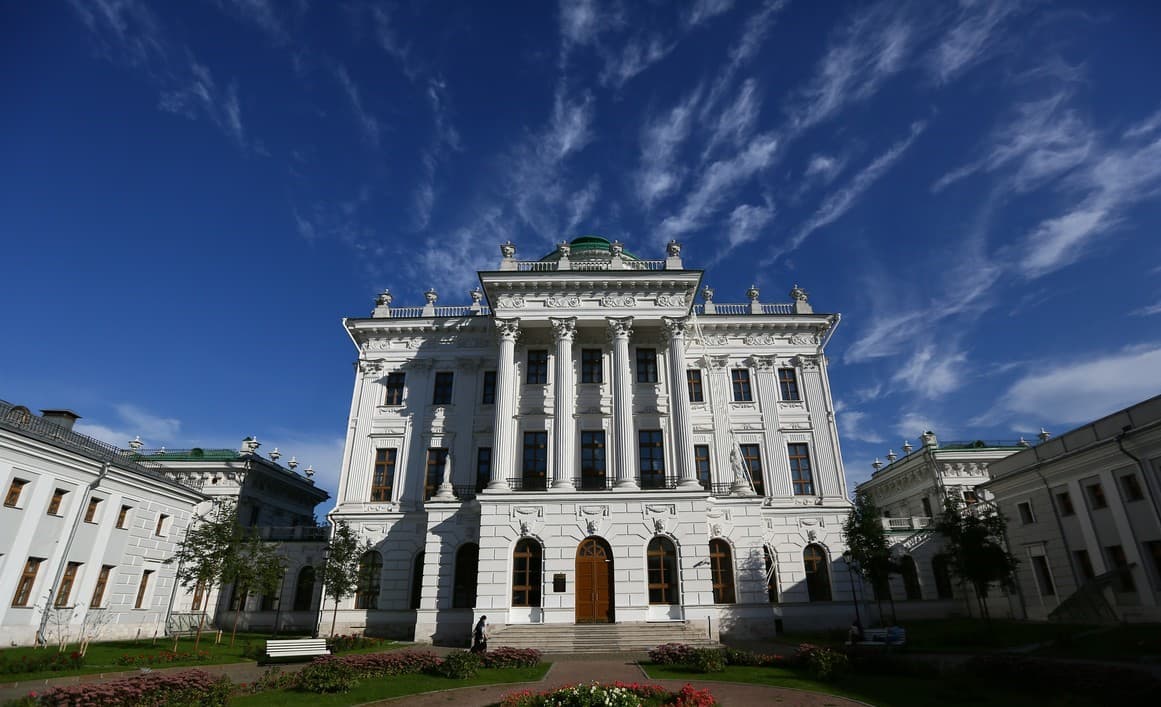On October 28, the International Scientific and Practical Conference "Magtymguly and His Role in World Culture" dedicated to the 300th anniversary of the great Turkmen poet and philosopher was held in Moscow, in the Pashkov House of the Russian State Library.
The significance of the event was noted by the presence of Ambassador of Turkmenistan to the Russian Federation Esen Aydogdyev, who emphasized that the substantive focus of the festival has an "organic connection with the rich centuries-old culture of the Turkmen people." The Ambassador expressed gratitude to the organizers of the festival for continuing the rich traditions of cultural interpenetration between the peoples of the two countries, a significant contribution to the general process of humanitarian cooperation between Turkmenistan and the Russian Federation.
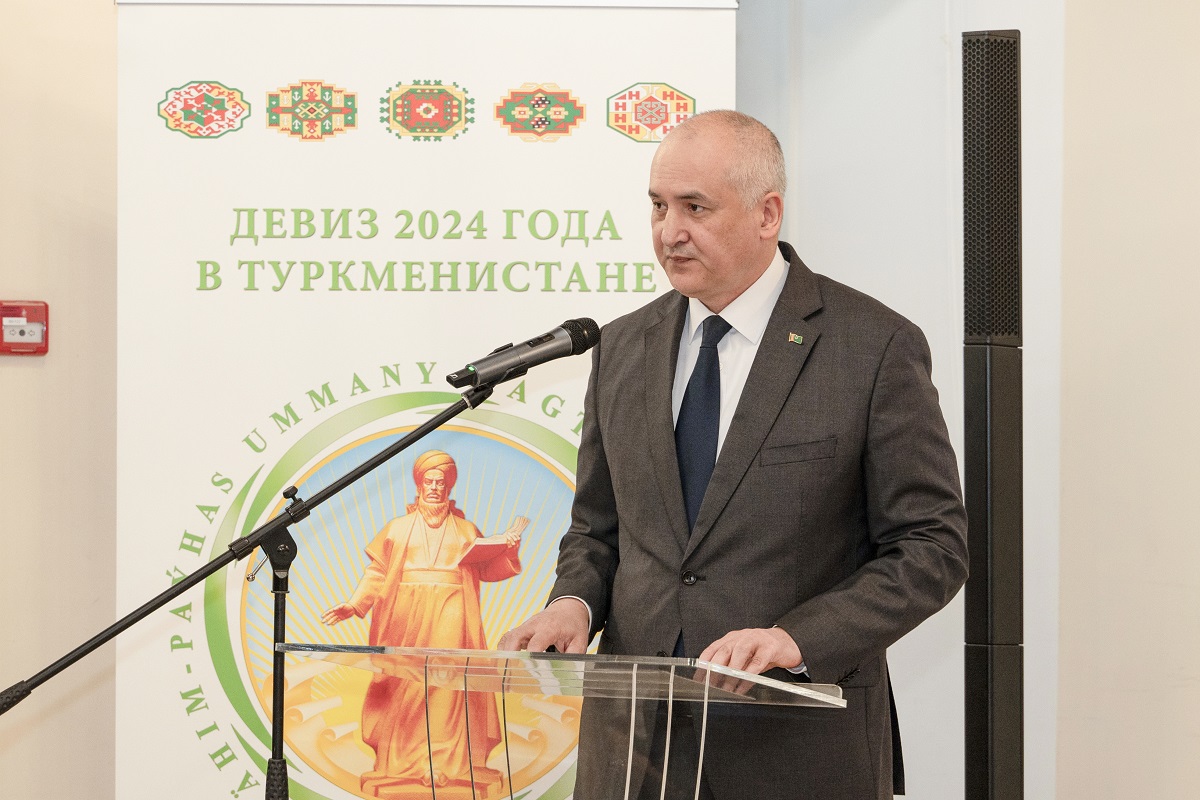
Aydogdyev donated anniversary copies of the selected works by Magtymguly Fragi and a number of valuable books written by National Leader of the Turkmen People, Chairman of the Khalk Maslakhaty Gurbanguly Berdimuhamedov and President of Turkmenistan Serdar Berdimuhamedov to the RSL funds.
At the opening of the conference, Director General of the Russian State Library, President of the Library Assembly of Eurasia, President of the Russian Library Association Vadim Duda emphasized: "Your festival is a significant annual cultural event in Moscow, its humanitarian mission is worthy of the highest praise, and we are proud to be a part of it." Duda noted that the festival organizers have been cooperating with the RSL for the second year and this cooperation is fruitful and promising: "It is a great honor for us to introduce the participants of the Festival to the rich collections of the musical publications and sound recordings department of the Russian State Library."
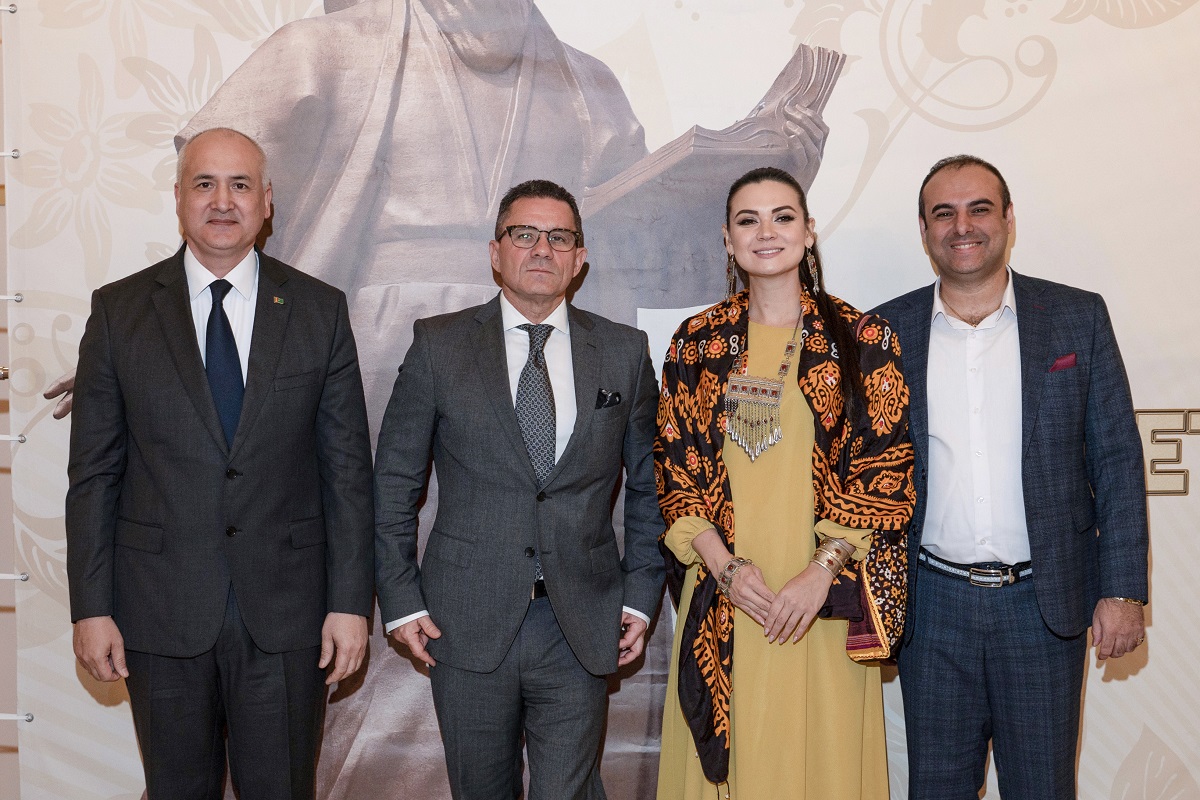
Stressing the significance of the event in honor of which the festival is held and which is the main theme of the scientific and practical conference, Vadim Duda said: "In 2024, the whole world celebrates the 300th anniversary of the great Turkmen poet and thinker Magtymguly Fragi, whose anniversary is included in the UNESCO List of memorable dates. We, as people of the book, perfectly understand the invaluable role of the classic in the development of national poetry and literary language."
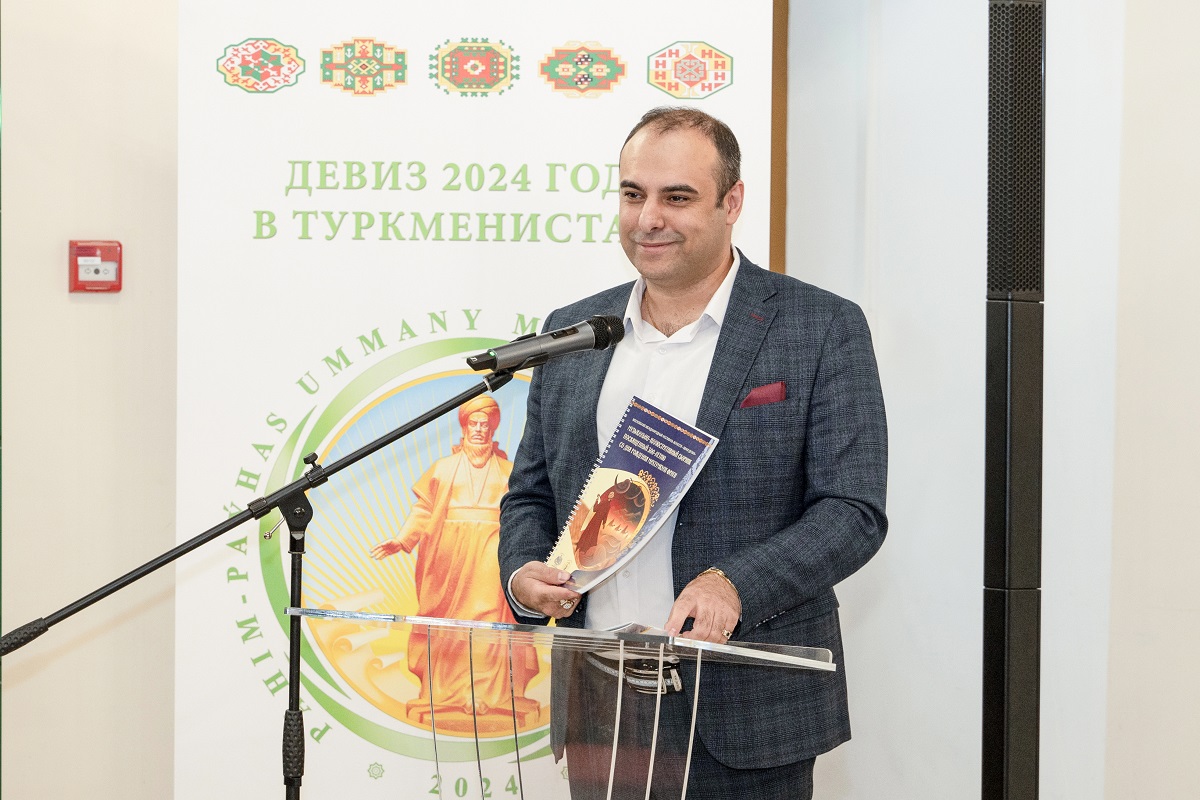
At the opening ceremony, musical compositions by People's Artist of Russia, Professor of the Gnessin Russian Academy of Music, composer Kirill Volkov, inspired by the poems of the great Magtymguly, were performed. The works "I Will Not Understand" translated by Yuri Gordienko and "Swans" translated by Arseny Tarkovsky were created by order of the "Sounds of Dutar" festival and were included in the musical and illustrative collection dedicated to the 300th anniversary of Magtymguly Fragi's birth.
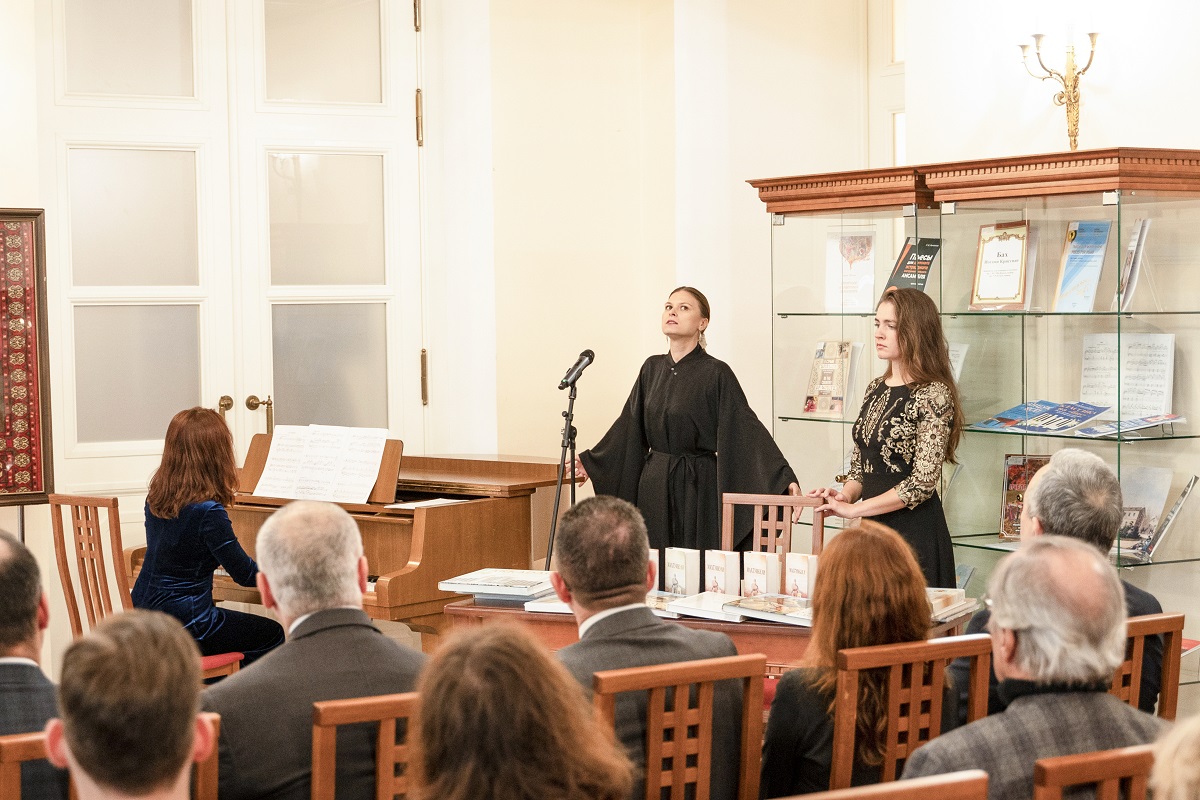
This collection, published by the Moscow International Arts Festival "Sounds of Dutar", includes both musical and pictorial works by the winners of the composers' competition and the illustration competition "Reflection". A special place in the collection is occupied by the works of honored artists who were members of the jury. Composer and art director of the Moscow International Arts Festival "Sounds of Dutar" named after Nury Khalmamedov, member of the Union of Composers of Russia Mamed Guseynov, donated a copy of the collection to the Russian State Library.
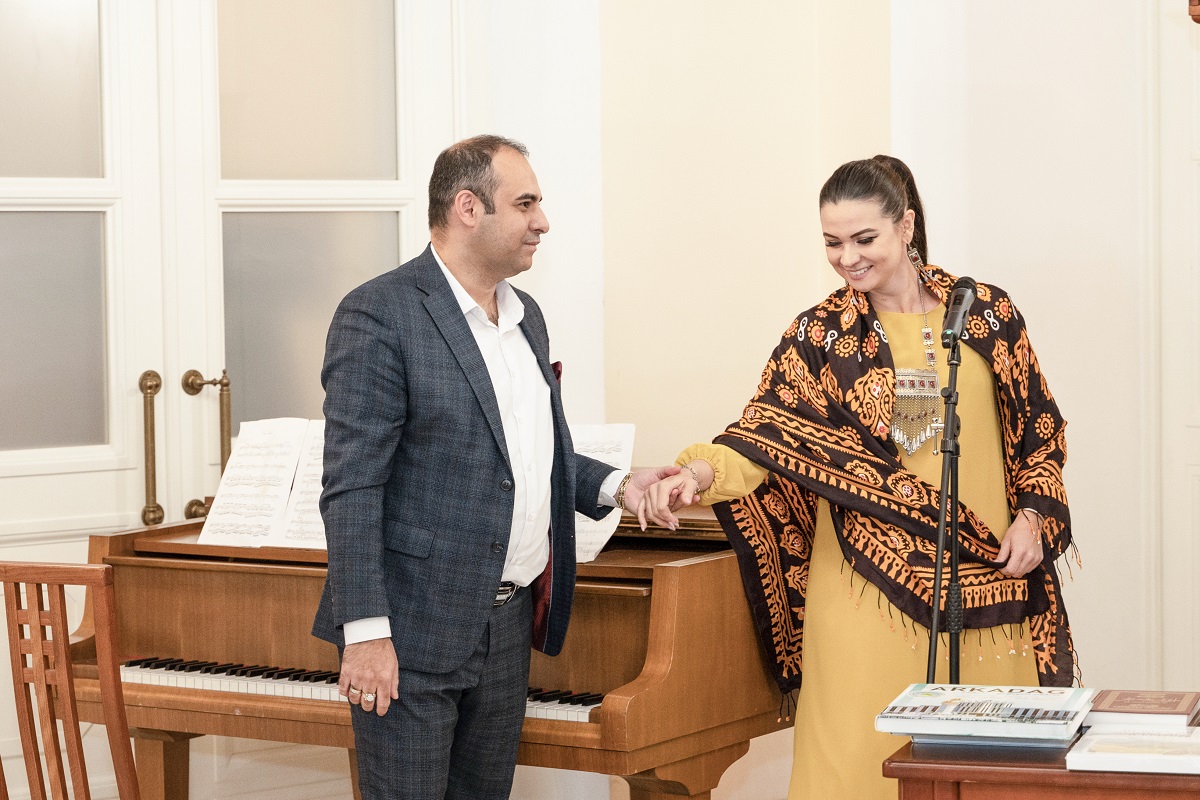
Mamed Guseynov, together with artist of the Helikon-Opera theater Darya Guseynova, performed his work "My Land" to the verses of Kurbannazar Ezizov translated by Vladimir Tsybin.
Moderator of the International scientific and practical conference was conductor, theater teacher, senior lecturer of GITIS, member of the organizing committee of the Moscow International Arts Festival "Sounds of Dutar" Evgeniy Volkov.
A significant block at the conference was presented by art historians, musicians and teachers of the Turkmen National Conservatory named after M. Kulieva, the online broadcast was provided thanks to the excellent organization of the technical side of the conference.
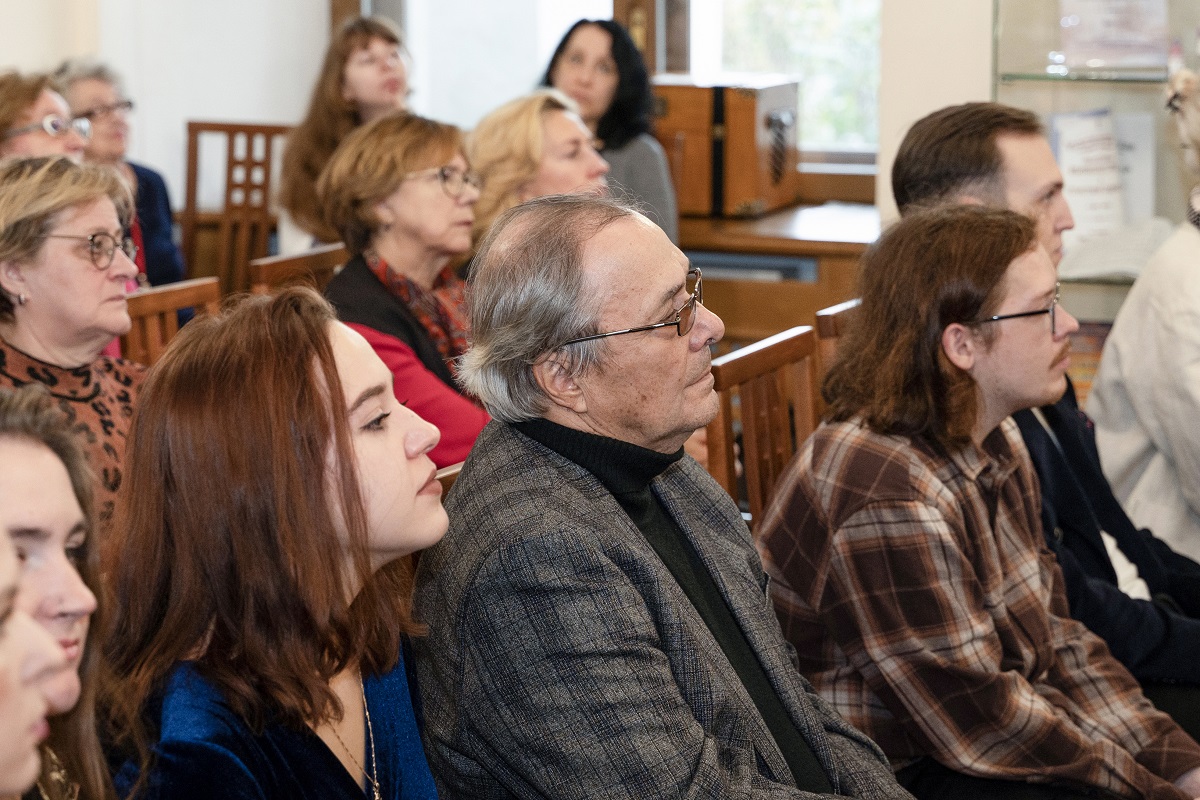
The reports of musicologists from Turkmenistan touch upon various issues related to the name of Magtymguly: from presenting a panorama of the appeal in vocal and symphonic music to the poet's work to the analysis of individual composers' opuses on his poems.
The report of head of the Department of Music History of the TNC Bakhar Yakubova highlights the problem of folk musicians' appeal to the poetry of Magtymguly and the organic reproduction of the ideas of the great poet in the songs of bakhshi - folk storytellers. The speaker notes that a certain part of Magtymguly's legacy has reached our days, becoming the poetic basis of bakhshi songs, and has been passed down from generation to generation. Even during Magtymguly's lifetime, the bakhshis became the main popularizers of his poems.
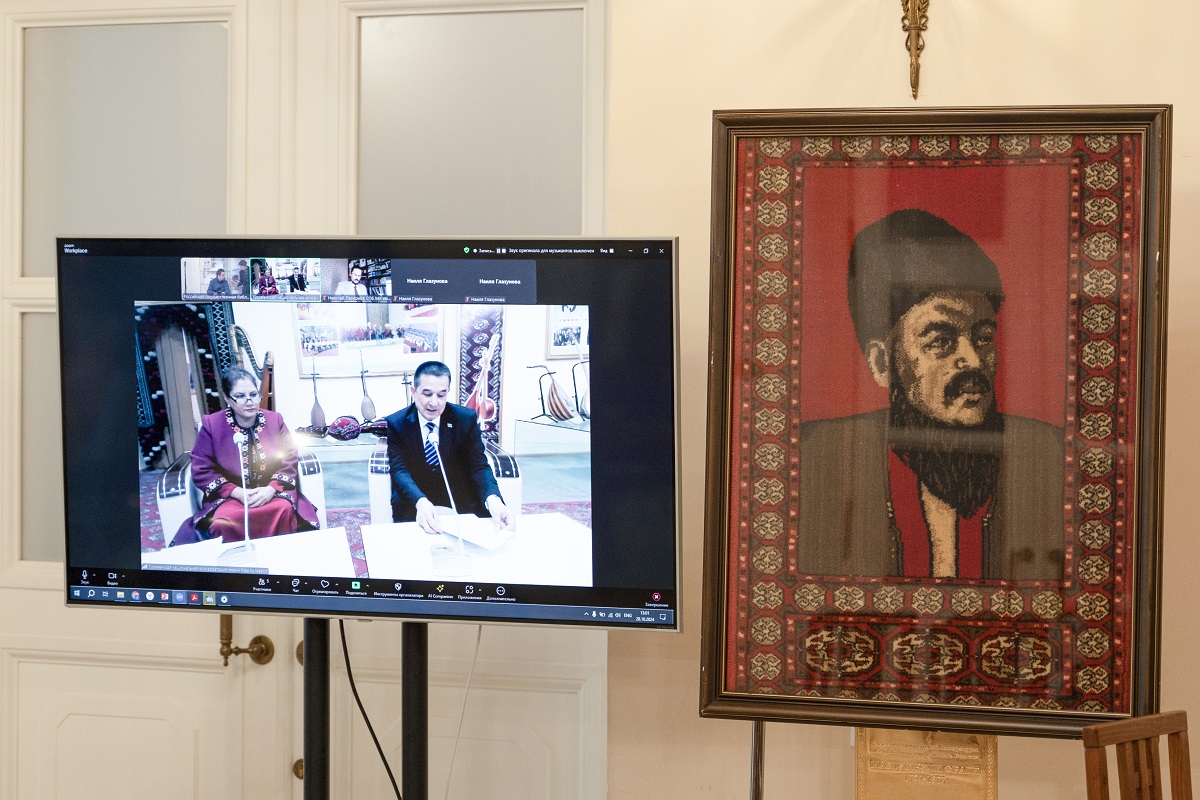
In the report of the senior lecturer of the Department of Music History of TNC, Candidate of Art History Agadzhan Achilov, the stages of the appeal of domestic composers to the poetry of Magtymguly are traced. Researchers, composers and performers note the exceptional musicality of his poems. For example, the researcher D. Abdullaev noted: "Magtymguly was the first in the history of Turkmen literature to create poems of such a rhythmic structure that completely coincided with national music." That is why the poems of the great Fragi were used in oral folklore, in the art of bakhshi and in modern composer's work.
In the report of senior lecturer of the Department of Music History Gulbahar Yazmamedova, using the example of the work of one of the founders of the Turkmen composer school, People's Artist of the USSR Ashir Kuliev, the issue of the first incarnation of Magtymguly's personality in the symphonic poem "Magtymguly" is considered. The composer created the work when he studied at the Moscow Conservatory. The poem represents one of the early examples of Turkmen symphonic music.
The report of Associate Professor of the Department of Music Theory of TNC, Candidate of Art History Elena Osipova raises the issue of the influence of Magtymguly's poetry, his artistic and aesthetic views and philosophical concept of the world on the work of Honored Artist of Turkmenistan, composer Sukhan Tuyliev. Magtymguly's poetry not only became the basis of his vocal compositions, but also influenced the artistic and musical embodiment of the national principle in the composer's instrumental cycles.
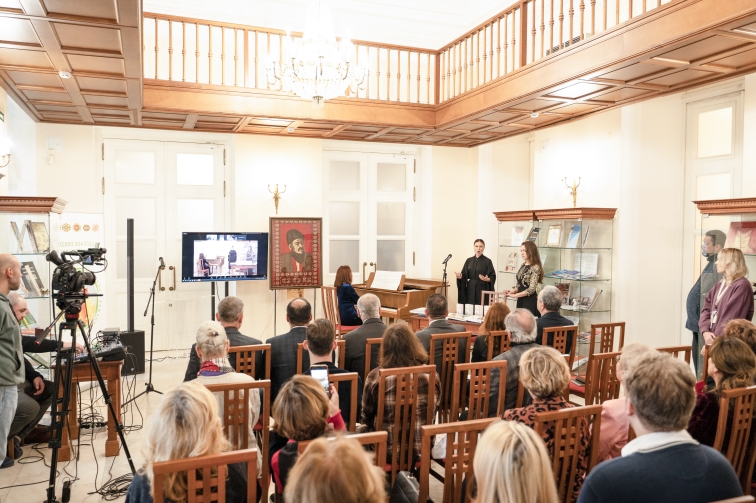
The report of senior lecturer of the Department of Music History of TNC Leyla Babaeva raises the issue of the embodiment of Magtymguly's poetry in the work of modern domestic and foreign composers. The musicologist examines the features of the composers K. Batashov, V. Ekimovsky, M. Guseynov, K. Dzhumakuliev's appeal to the work of the great poet.
It is worth noting the high professional level of the speakers, genuine interest in the chosen topic, love and deep insight into culture, respect for traditions and pride in the significance of the contribution to the world treasury. The reports were beautifully illustrated with both musical and visual material.
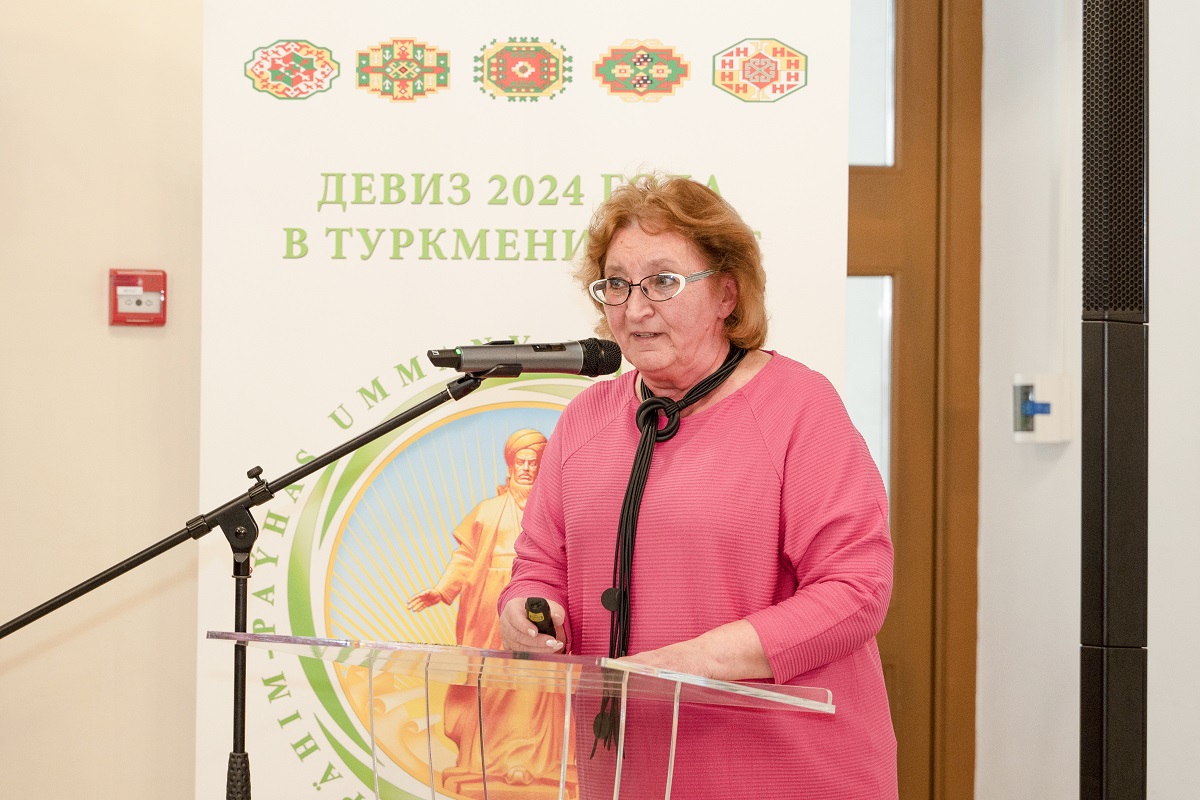
Head of the Department of Music Publications and Sound Recordings of the Russian State Library, Chairperson of the Music Libraries Section of the Russian Library, Candidate of Pedagogical Sciences Alla Semenyuk, following the General Director, confirmed the importance of familiarizing the participants of the conference and festival with the rich collections of the Department of Music Publications and Sound Recordings of the Russian State Library, which contain music collections of songs and choirs based on the poems of Magtymguly by such composers as D. Ovezov, V. Akhmedov, V. Mukhatov, Ch. Nurymov, N. Khalmamedov, R. Kutlieva, A. Kuliev.
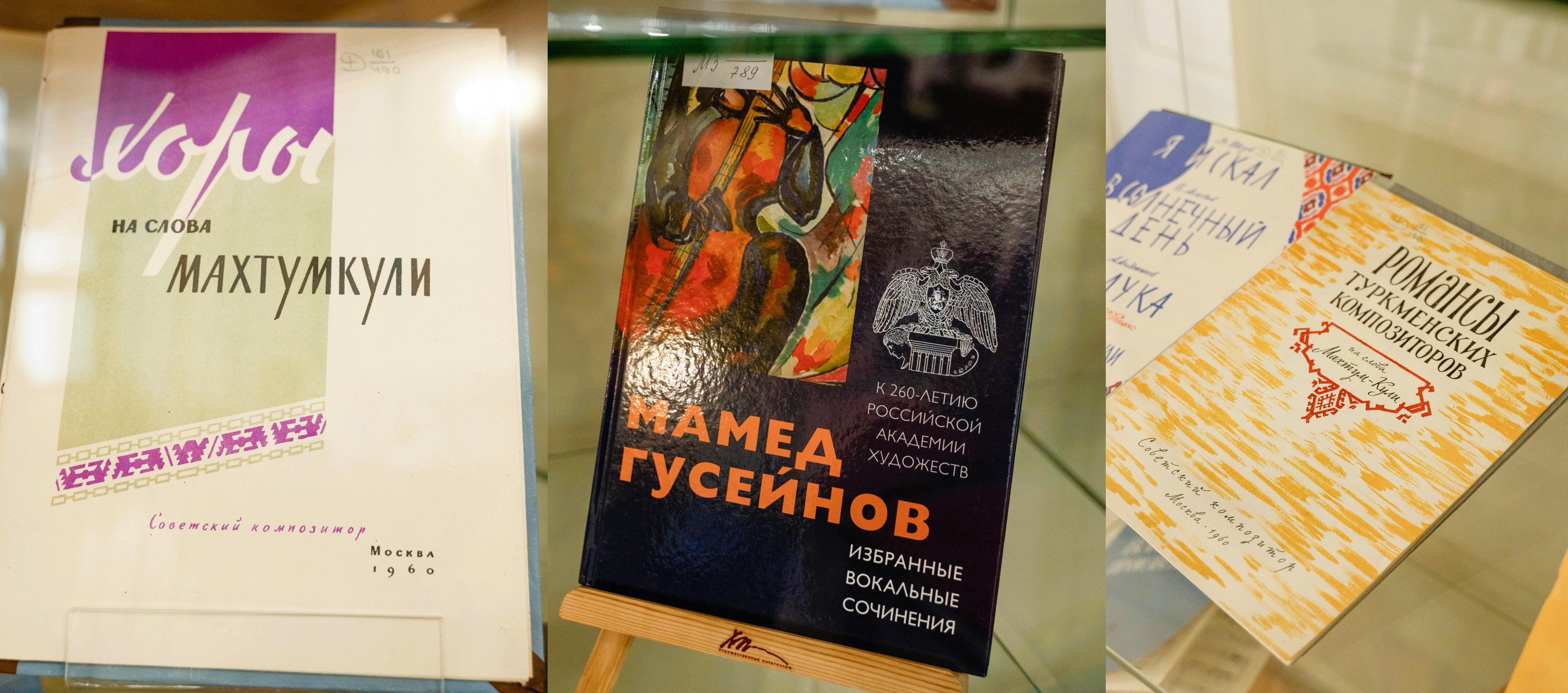
Semenyuk noted the presence in the Russian State Library of sound recordings of works based on Magtymguly's texts performed by famous singers and performers on Turkmen folk instruments: B. Uderbaeva, T. Doshumova, N. Meredova, S. Khodjaev, A. Charyk, M. Akhmedov, vocal and instrumental ensembles "Gunesh", "Yalla" and many others. The sound recordings were made by the Melodiya company in Moscow and the Tashkent branch of the M. T. Tashmukhamedov recording studio."
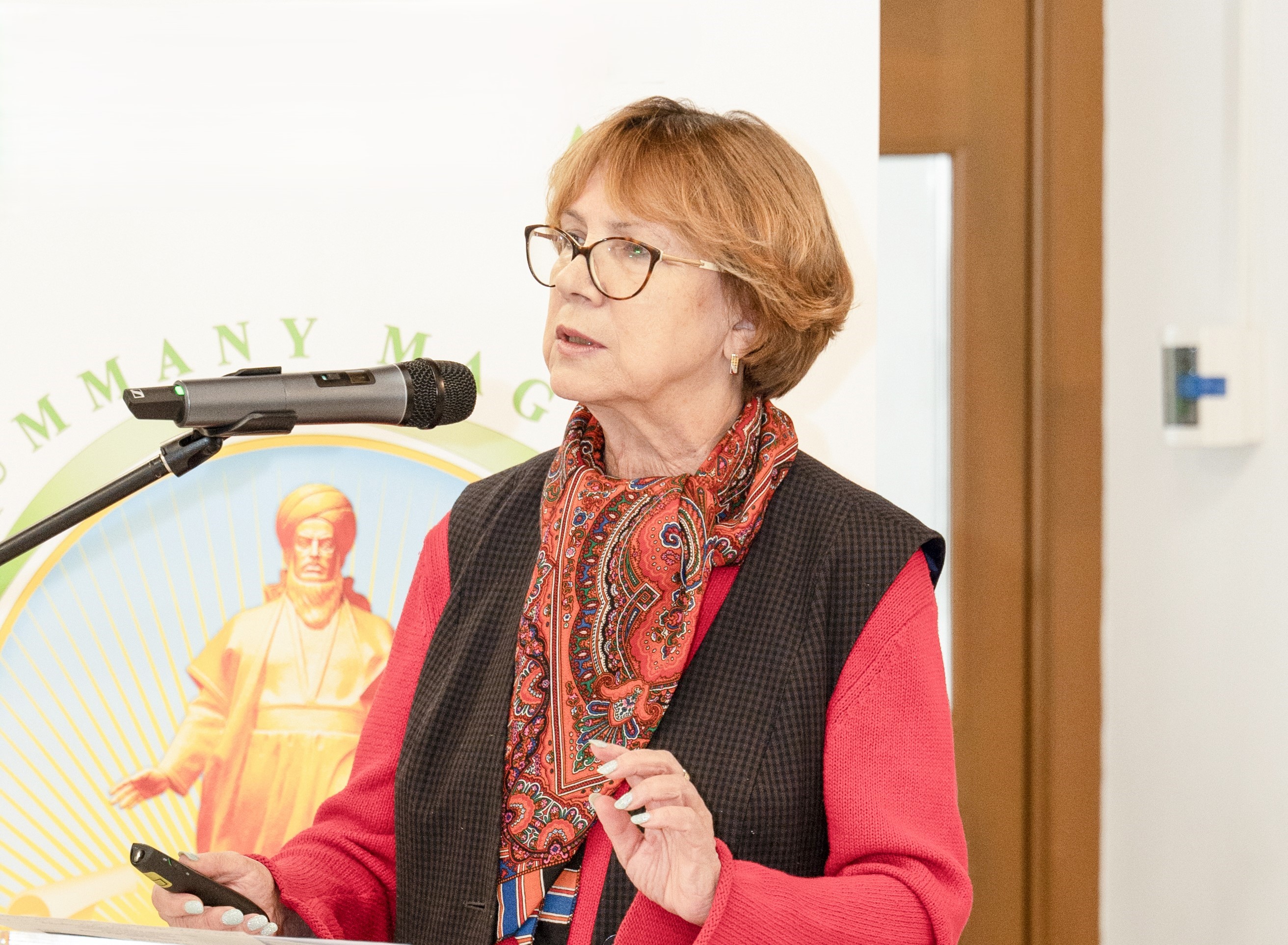
Svetlana Stepanova, Doctor of Art History, leading employee of the State Tretyakov Gallery, presented a very interesting report "On the "national code". Svetlana Stepanovna raises the most pressing contemporary issue of the uniqueness of cultures and the reflection in artistic form of the essential meanings of the existence of one's people using the example of the works of Alexey Venetsianov, Grigory Soroka, and the Suprematist artist Eduard Steinberg. Stepanova reveals the depth of the concept of "tradition" and demonstrates how it "can manifest itself not only in the direct continuity of style and method, but, above all, in the ethical and humane direction of creativity."
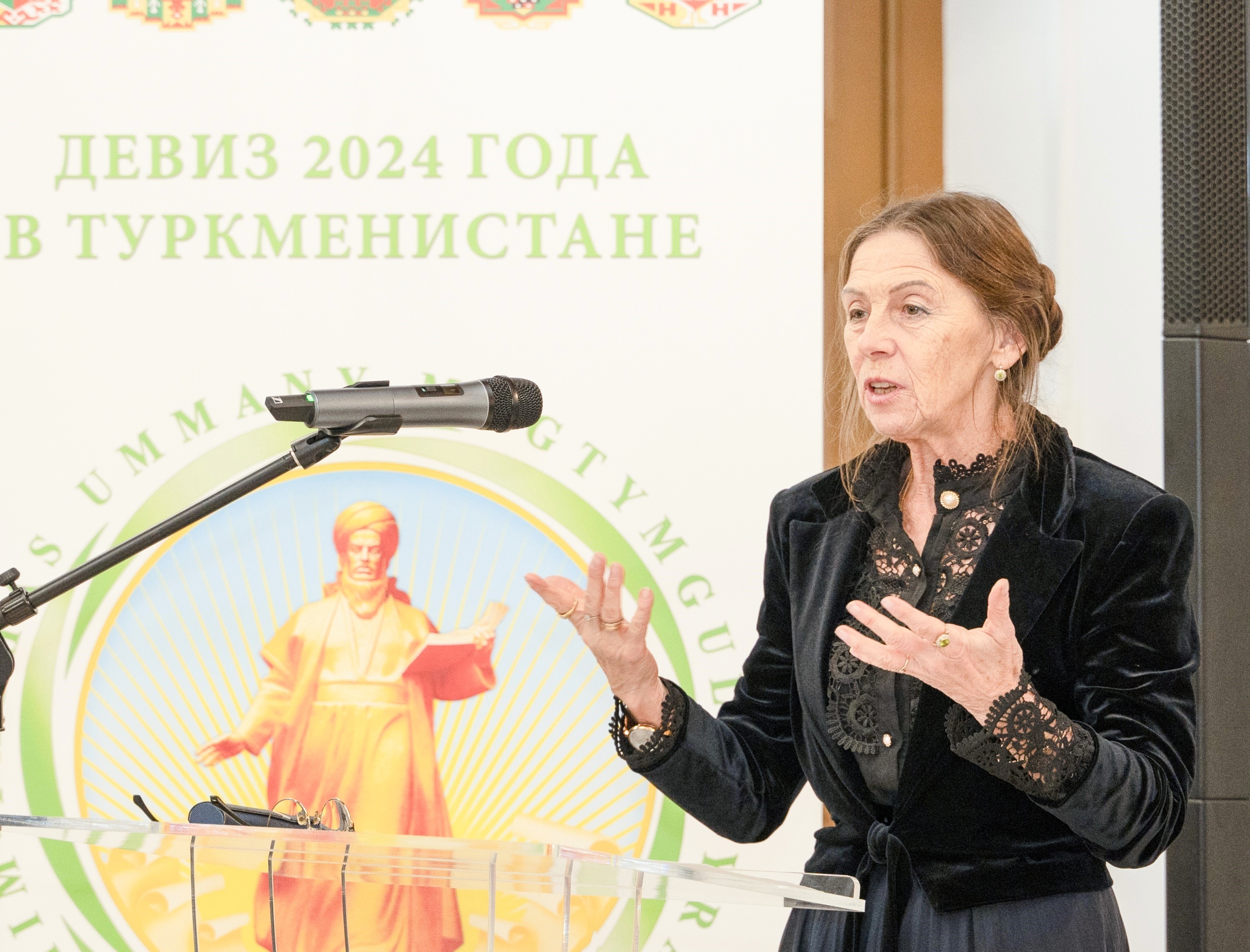
The St. Petersburg school was represented by literature teacher Nikolai Larionov and researcher, teacher of world culture history Tatyana Solodkova, St. Petersburg Music College named after N.A. Rimsky-Korsakov. The topic of the report was "Magtymguly Fragi - Arseny Tarkovsky: Dialogue of Fates". One of its key issues is the problem of training and education of modern professional youth in the field of culture, while attention is drawn to the practical lack of familiarity with the great literature and music of the East, focusing mainly on Western models. The issue of translation, which is possible only with a deep understanding of the characters of the people is raised.
"We can say that Russian literature is a kind of bridge between different cultures and literatures of different countries of the world, separated by huge distances, and sometimes time," Larionov emphasizes. As a confirmation of his position, Nikolai Andreevich beautifully performed the poems by Magtymguly in Tarkovsky’s translation, where the tragedy of Fragi (Separated) merges with the personal tragedy of Arseny Tarkovsky, as the tragedy of a suffering human soul.
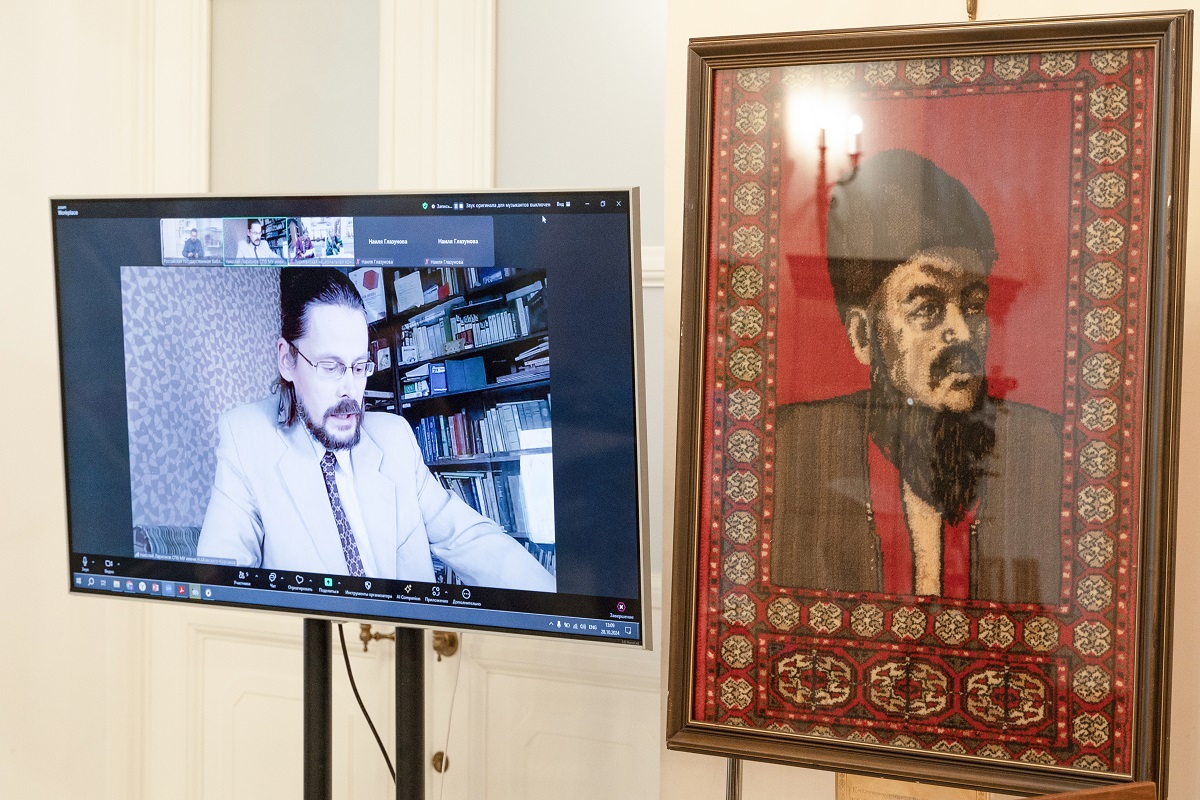
Artistic Director of the Charity Fund "Domestic Art" Fyodor Amosov, teacher of the Central Music School of the Academy of Performing Arts devoted his speech to elements of folk music in the art of modern composers-performers.
Russian anthropologist, archaeologist, Candidate of Biological Sciences, Doctor of Historical Sciences Nadezhda Dubova presented unique and interesting material that allows us to take a new look at the history of the culture of the Turkmen people, which has a thousand-year history. Archaeology gives us information about antiquity. When there was no writing, people expressed their ideas about the world in the form of images on seals and other objects. From them, we can form an idea of what the ancients could know, what songs and musical works they could compose about. The speaker cited as an example new finds from the world-famous monument of Gonur-depe in Turkmenistan.
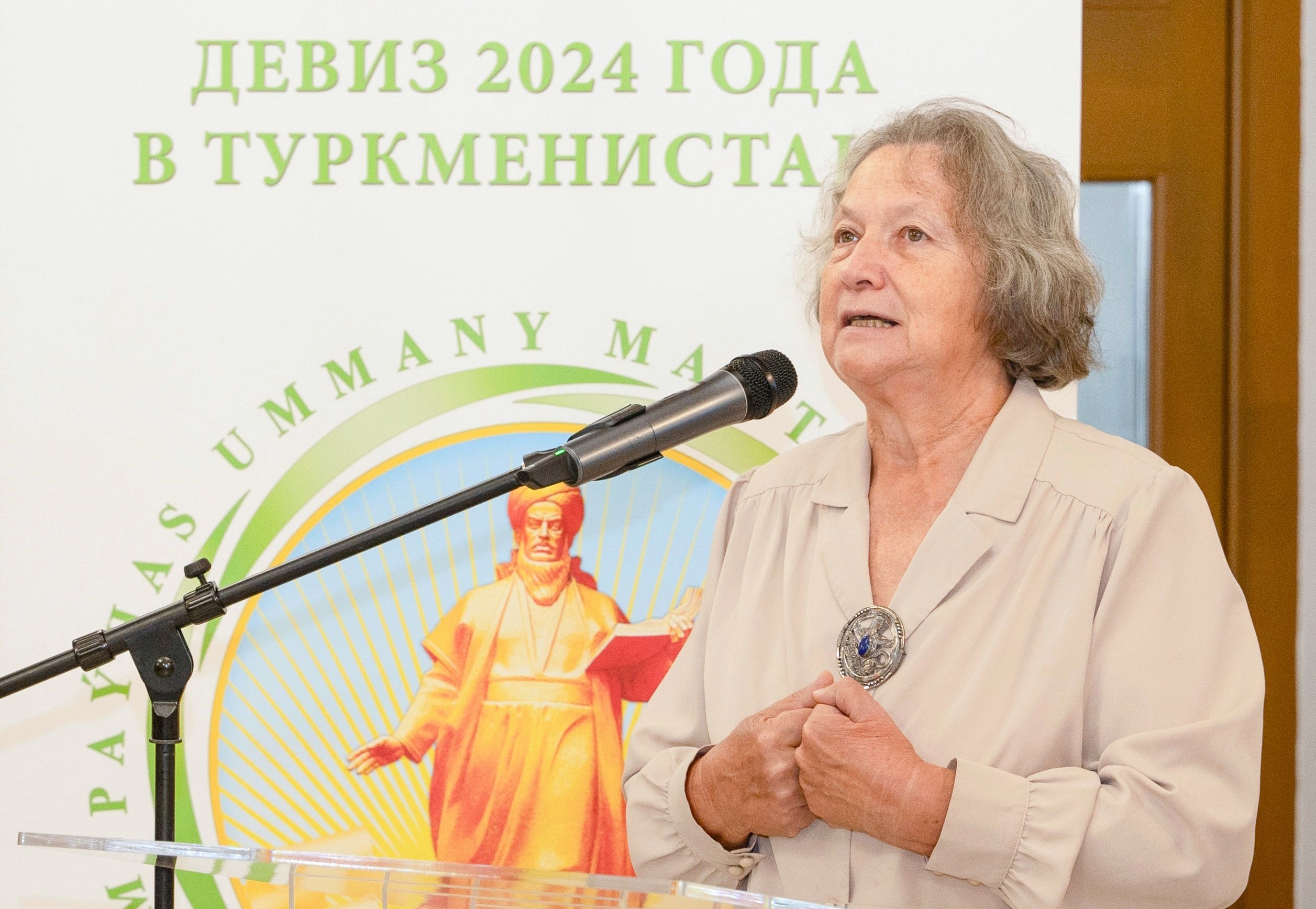
In particular, she showed an image of a bronze seal that was found quite recently. It depicts two griffins, on the back of one of which is a crescent moon, and behind the back of the second are three dots, possibly depicting one of the constellations that the Turkmen call "Three Stars" - "Uch Yildyz". If experts confirm this assumption, then we can say that this find is the first seal in Turkmenistan with an image of a celestial constellation, which will indicate that the distant ancestors of the Turkmen knew about astronomy 4,000 years ago.
Natalya Savinkova, pianist, teacher, head of the special piano department of the music school of pop and jazz art of the Russian Academy of Music named after Gnesinykh, the organizer and chairman of the organizing committee of the annual international competition-festival "Piano in Jazz", in her report "Interaction of classical and contemporary art" raises the most important problem in the educational environment of the relationship between historical, philosophical and practical aspects.
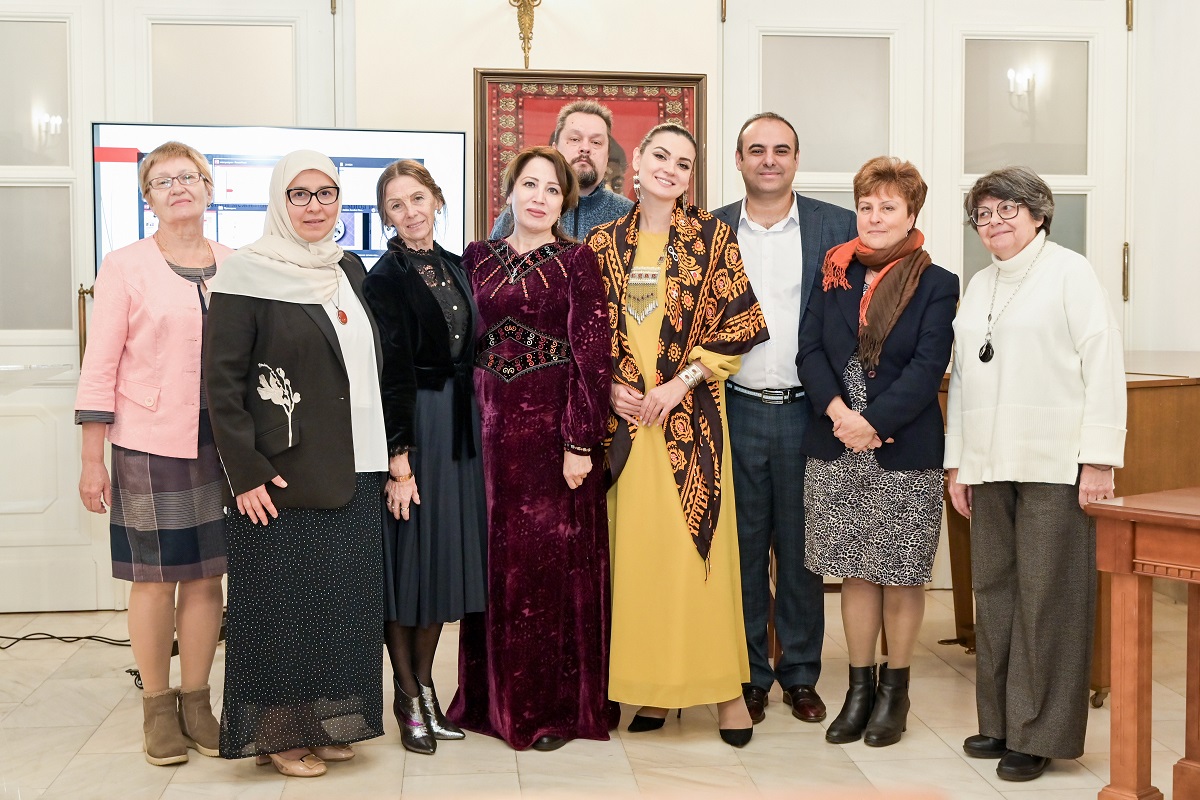
Putting as a cornerstone the position that “musical creativity is a reflection of “hearing” the surrounding world”, based on her own 20 years of experience in organizing and holding the competition and relying on the experience of luminaries of performing teachers, such as Heinrich Neuhaus, Maria Yudina and others, Natalia Leonidovna came to the conclusion: “If a teacher does not play, does not listen and does not love modern academic music, then he will not be able to instill an understanding of this layer of musical culture in his student”. And this, in turn, led to the most difficult problem of our time - “we have not educated listeners who will come to concerts of modern composers. This means that we have not learned to carefully treat the intellectual heritage in the form of national composer schools”. Savinkova sees only one solution to the problem, which should affect all stages of musical education at the level of forming training programs, offering mandatory study of works by modern composers of the Russian and other national schools.
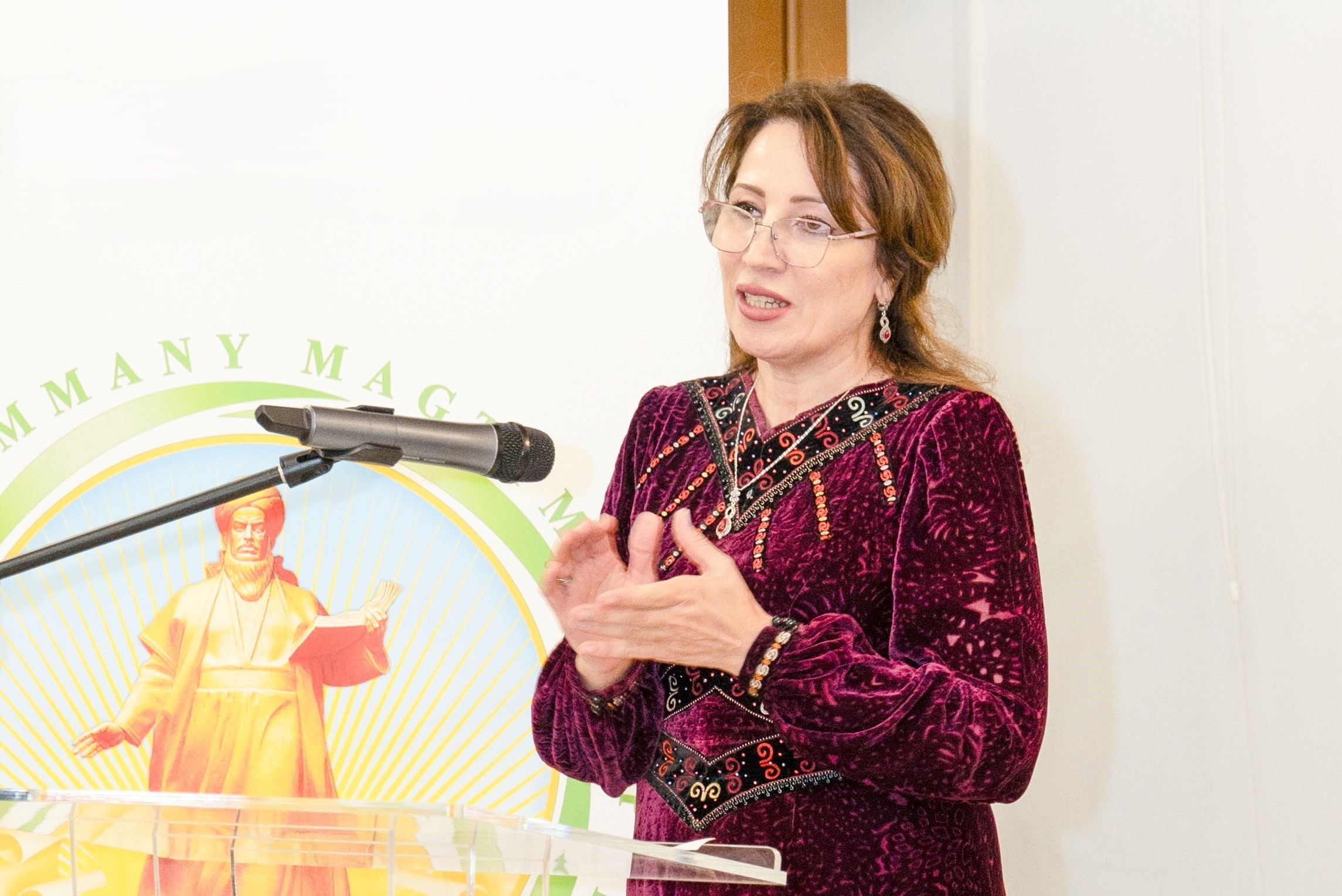
The performance of opera singer Zhanna Sayiyan, a teacher at the Maya Kulieva TNC, was dedicated to her mentor, People's Artist of the USSR Medeniet Shakhberdyeva, who was called the "Turkmen nightingale".
The report of singer Laura Vodyanitskaya, associate professor of the pop and jazz singing department of the Maimonides Academy Institute of the A.N. Kosygin Russian State University, was devoted to the problem of synthesizing two main trends in musical culture - third-stream music, that is, the fusion of academic music and jazz. The relevance of the topic is that there have been no serious studies in recent years in this area of how this already established synthesis influences and will influence the development of world musical culture as a whole.
Aminat Magomedova, Associate Professor of the Department of Population, Faculty of Economics, Lomonosov Moscow State University, expert of the Open Government of the Russian Federation and the club "Russian Parliamentarian" of the State Duma of the Russian Federation drew attention to the main problems of the formation of the personality of a child in modern society. "The culture of coexistence - emphasizes Aminat Gimbatovna - affects not only health, but also peace, stability and interethnic harmony and unity." She called for changing the situation, strengthening unity, creating a healthy moral and psychological environment to pay attention to the prevalence of interethnic holidays, festivals, exhibitions, fairs, as well as the degree of familiarity with the music of one's own people and the music and other aspects of the culture of representatives of other peoples.
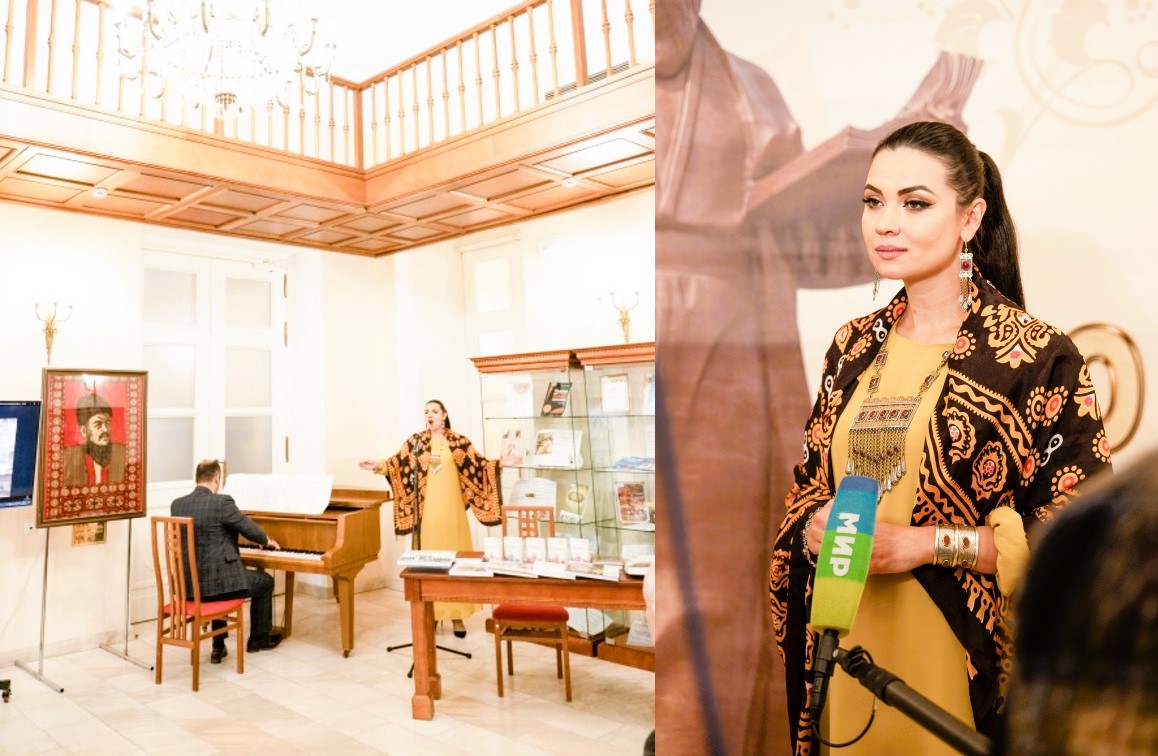
Magomedova concludes that "perception of otherness through culture is the right strategy for ensuring interethnic harmony, peace and stability." Art, being the inner core of culture, provides an understanding of the uniqueness of other peoples and leads to a positive attitude towards them through poetry, music and other manifestations of culture.
Tatyana SOLODKOVA, culturologist, head of the press service of the Moscow International Arts Festival "Sounds of Dutar"
